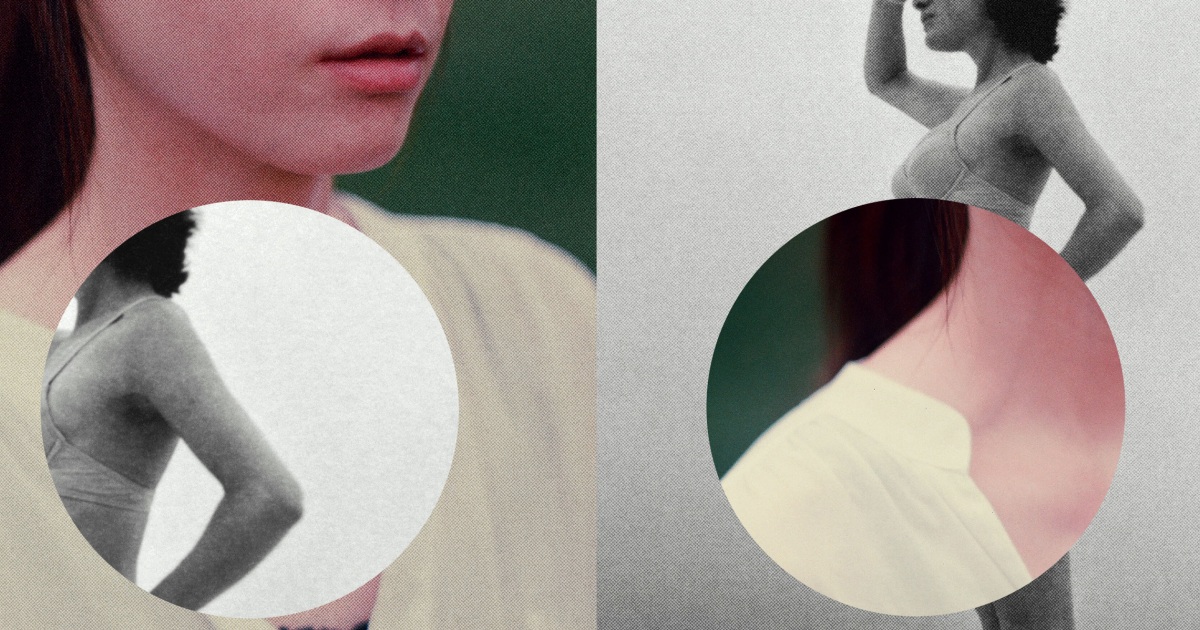
There’s a lot traditionally passed down through Asian families: values, traditions, language. Pressure to be thin also seems to be on the list for Asian American women.
Take, for instance, the Reddit discussion titled “Asian moms and their terrible body image issues.”
“I was always told that I was too fat, but at the same time my mom shows her love through food and is always shoving food at me,” a user wrote. Then there’s the Cold Tea Collective, which published an article with tips for dealing with fat-shaming in an Asian family. Thick Dumpling Skin on Tumblr shares blog posts about body image, offering a place for “hungry Asian voices to be heard.”
A new study released Wednesday by PLOS ONE examines those deep-rooted East Asian body standards, as well as the pressure Western social media puts on white women when it comes to body image. The study assessed women’s positive feelings about their bodies and found that both Chinese and white Western women idealize thin bodies significantly more than Black Nigerian women.
These groups, specifically, were surveyed to capture globally diverse experiences and represent people who aren’t always included in existing research, the study says.
The study also found that Chinese women reported feeling pressure about their appearance from family members and that white Western women reported feeling that pressure from social media. While the study doesn’t examine Chinese American women in particular, the findings suggest that the pressures may be twofold for the group.
“You almost would have it bad from both ways,” Louise Hanson, one of the authors of the study, told NBC News.
Scarlett Hao, a Chinese plus-size fashion influencer who moved to the U.S. as a teenager, said that when she was young, pressure from family members, teachers and peers led her to intense dieting and struggles with her body image. She said Chinese beauty standards haven’t changed.
“I feel the beauty standard is not catching up with how the society and environment changes nowadays,” Hao said. “People keep the old beauty standard. That’s why everyone is still using the old standard to judge you.”
Hanson said one reason Chinese women feel the most pressure from family members and peers may be that East Asian families tend to eat meals together more than others. As a result, Chinese women are more likely to have conversations about things like portion size with their families, leading to lower levels of body appreciation.
However, peer pressure doesn’t arise just through direct comments — the way family members and friends act can also affect a woman’s sense of body appreciation. “If you have a friend who comments about their own body — for example, they say ‘I’m eating so much today’ in a negative way — then that influences you, as well,” Hanson said.
The study suggests that the cultural value of thinness is intergenerational in Chinese culture. Chinese women reported thin ideal internalization throughout their lifetimes, whereas white Western women’s view of thinness as ideal diminished as they got older.
Research has also found that the Chinese idealization of thinness is connected to the belief that meeting that ideal has socioeconomic benefits, such as attracting male partners, a phenomenon Hanson called “body as currency.”
A Reddit user said body shaming by Asian parents was “unsolicited advice.” “I think deep down it’s at least somewhat tied to the idea of filial piety (they gave you life and expect you to be beholden to them and their opinions),” the user wrote.
For Chinese women living in the West, pressure from both peers and the media may come together to reinforce thinness as the ideal. White Western women reported feeling significantly higher pressure from the media, as well as the lowest body appreciation among all groups.
Still, Hanson said, one surprising result of the study was that while Chinese women reported the most pressure overall, they still appreciated their bodies more than white Western women did.
Hao said that when she first started using social media in the U.S. in 2015, she was welcomed into an inclusive online community of plus-size women. She said the U.S. market catered to plus-size women much more than in China, where she could never find fashionable clothes in her size. “Once you are over a certain size, there’s not many options. You’ve got to wear very basic and normal ugly clothes,” she said.
Now, however, Hao feels that post-Covid, a renewed focus on health in the U.S. has resulted in a narrative that being plus-sized is unhealthy.
The PLOS ONE study also found that Nigerian women have the highest levels of body appreciation. Nigerian women experience far less thin idealization than white Western and Chinese women, with the ideal body size in several African countries being larger than that of China and in the West.
However, Hanson said, Western media is changing the global ideal. “There definitely is this introduction of Western media, and as that spreads, the ideal body globally is becoming thinner,” she said.
For Nigerian American women, the idealized thin American body type contradicts Nigerian beauty standards. Hanson said that Nigeria has a more body positive culture overall and that African values that promote fuller bodies act as a “protective factor” against negative body image.
Nigerian American women who encounter the glorification of thinness in Western media, however, could begin to experience media and peer pressure that isn’t as common in Nigerian society.
“It’s just through exposure, that you’re walking down the street and you’re seeing adverts of these models who are very thin,” she said. “No matter how protective your family is, it does influence you.”






